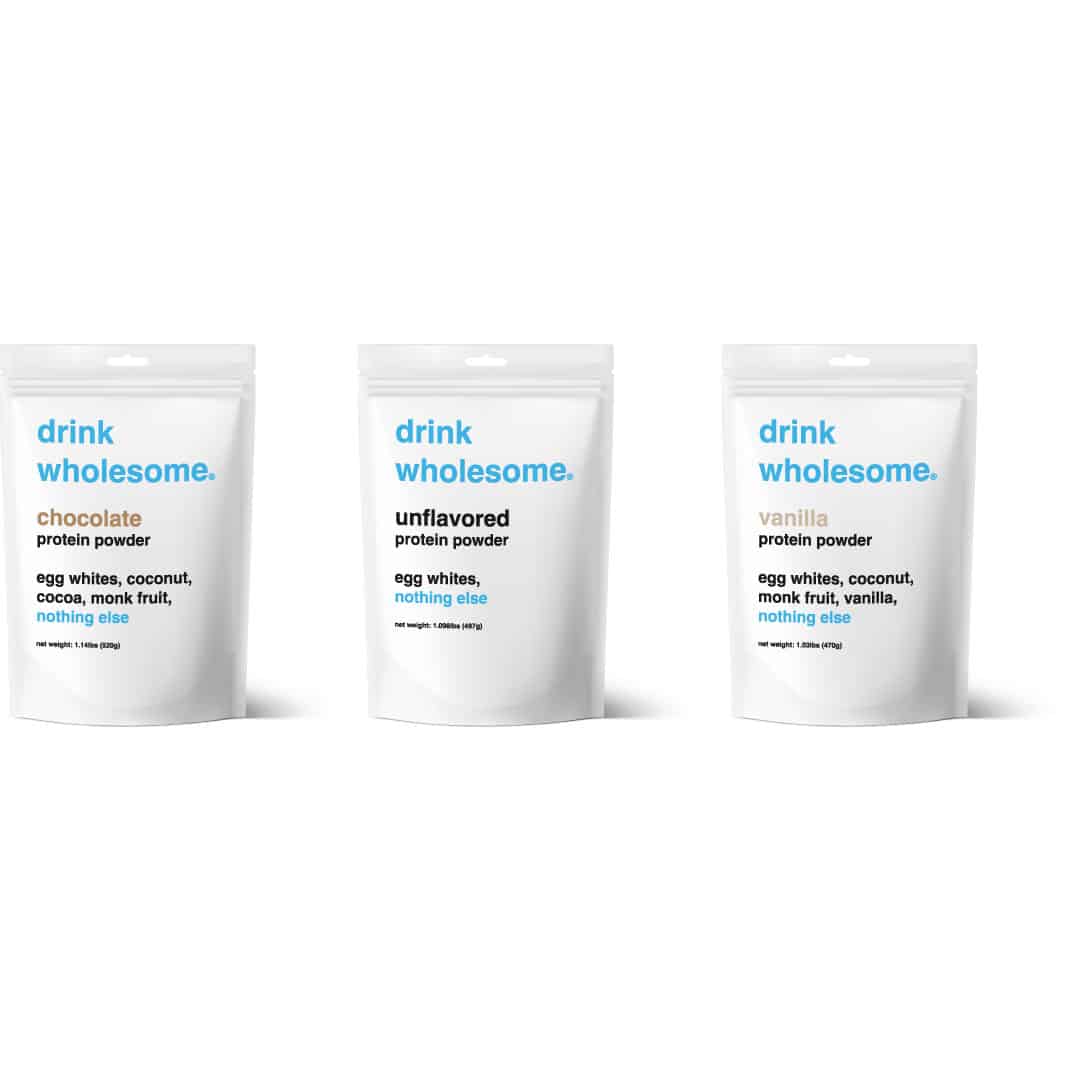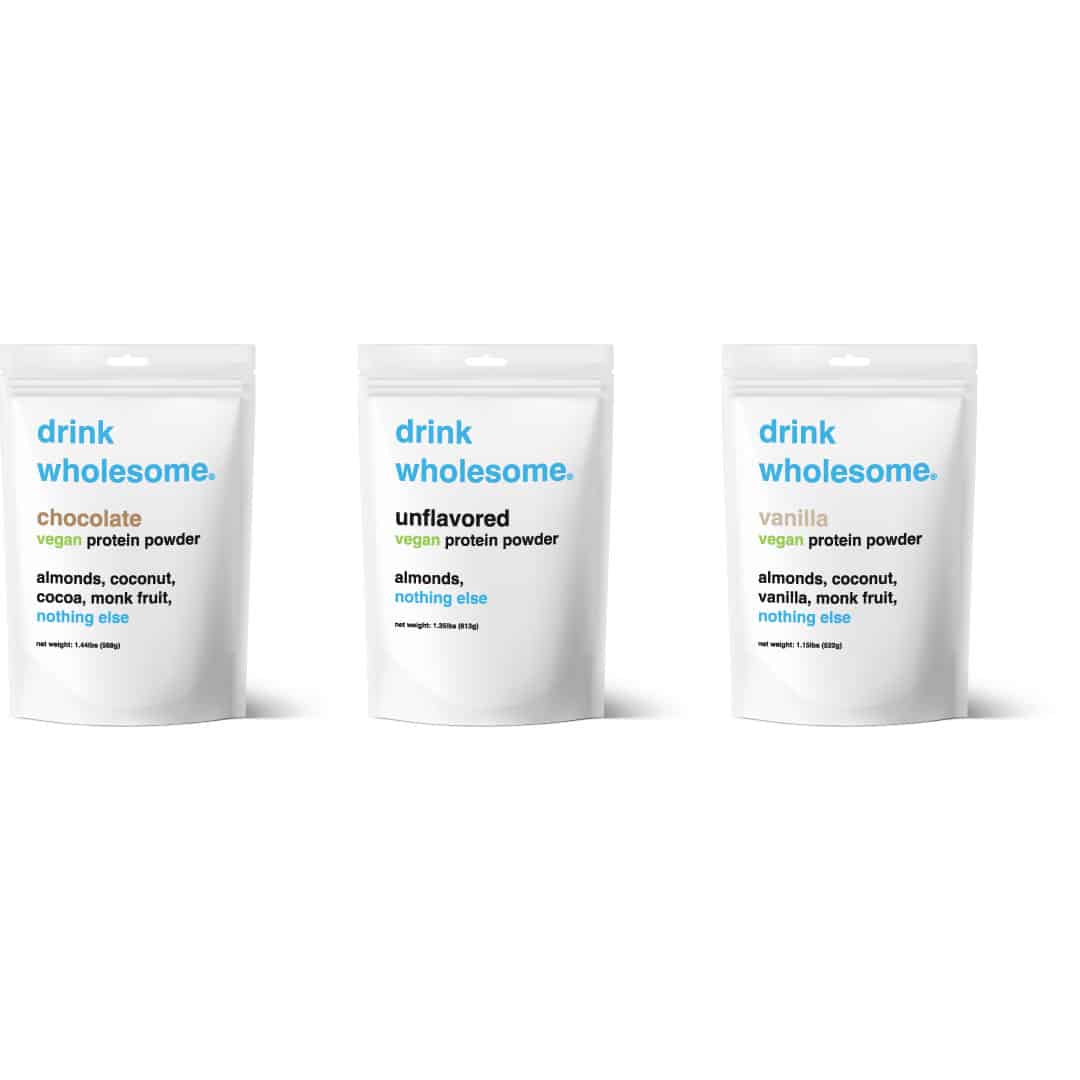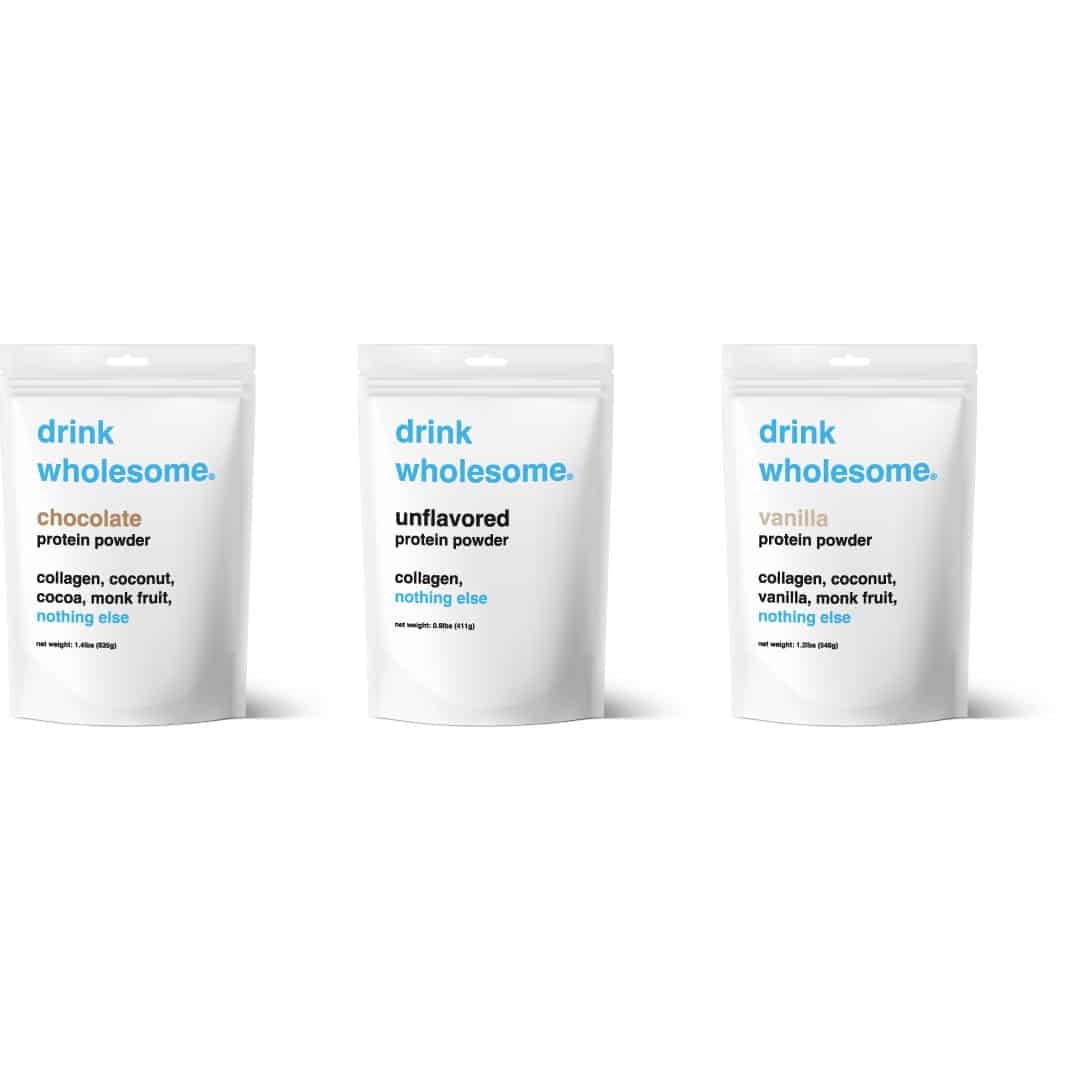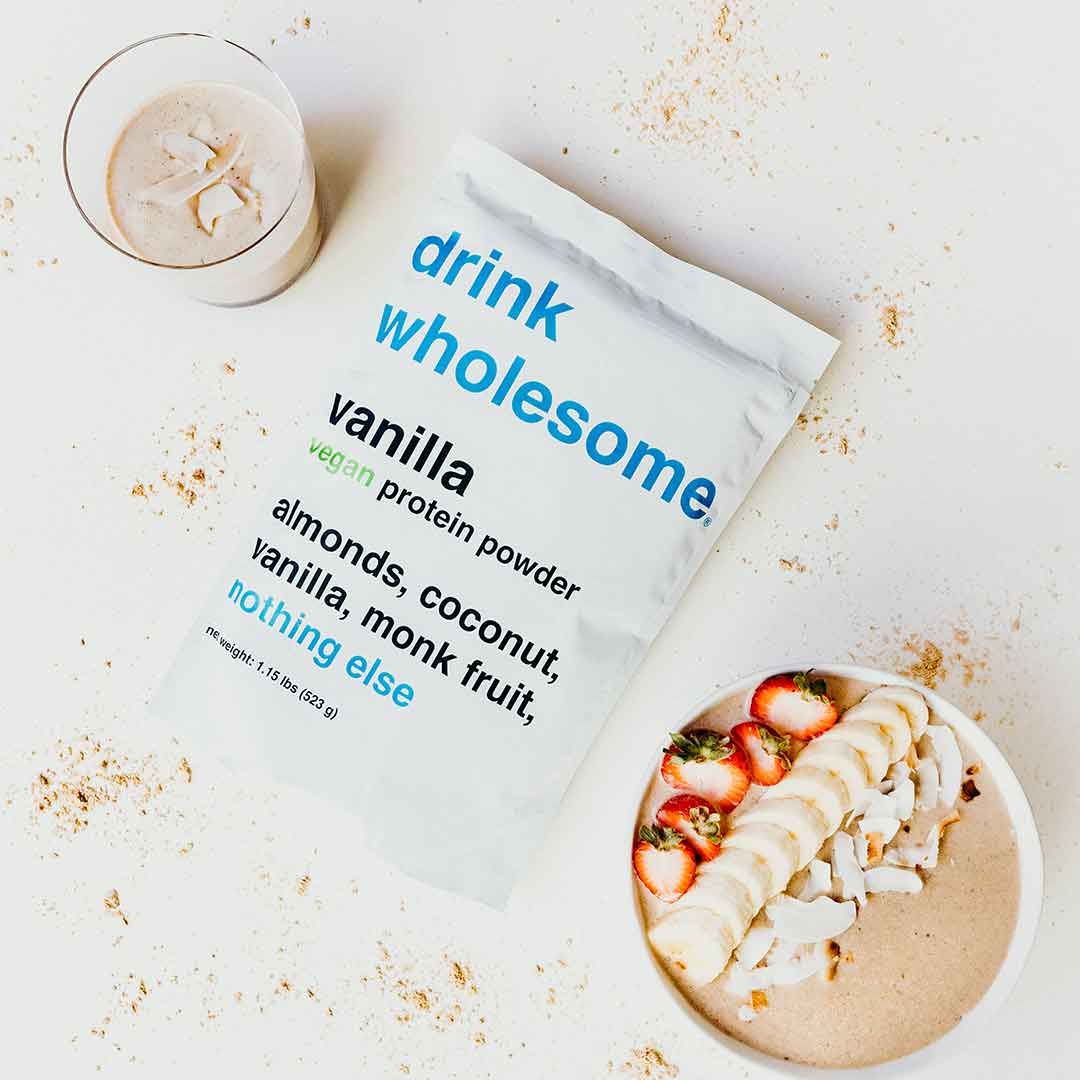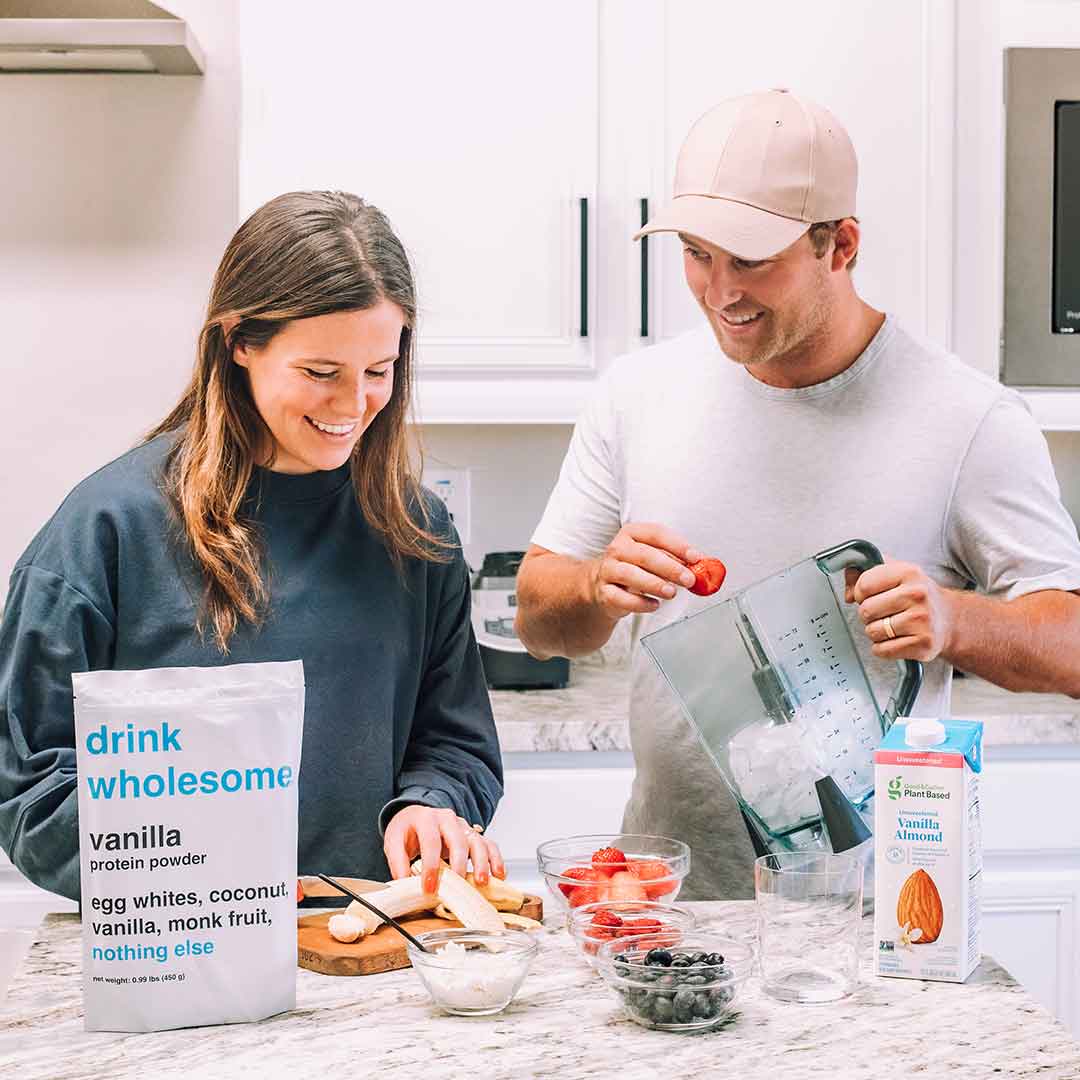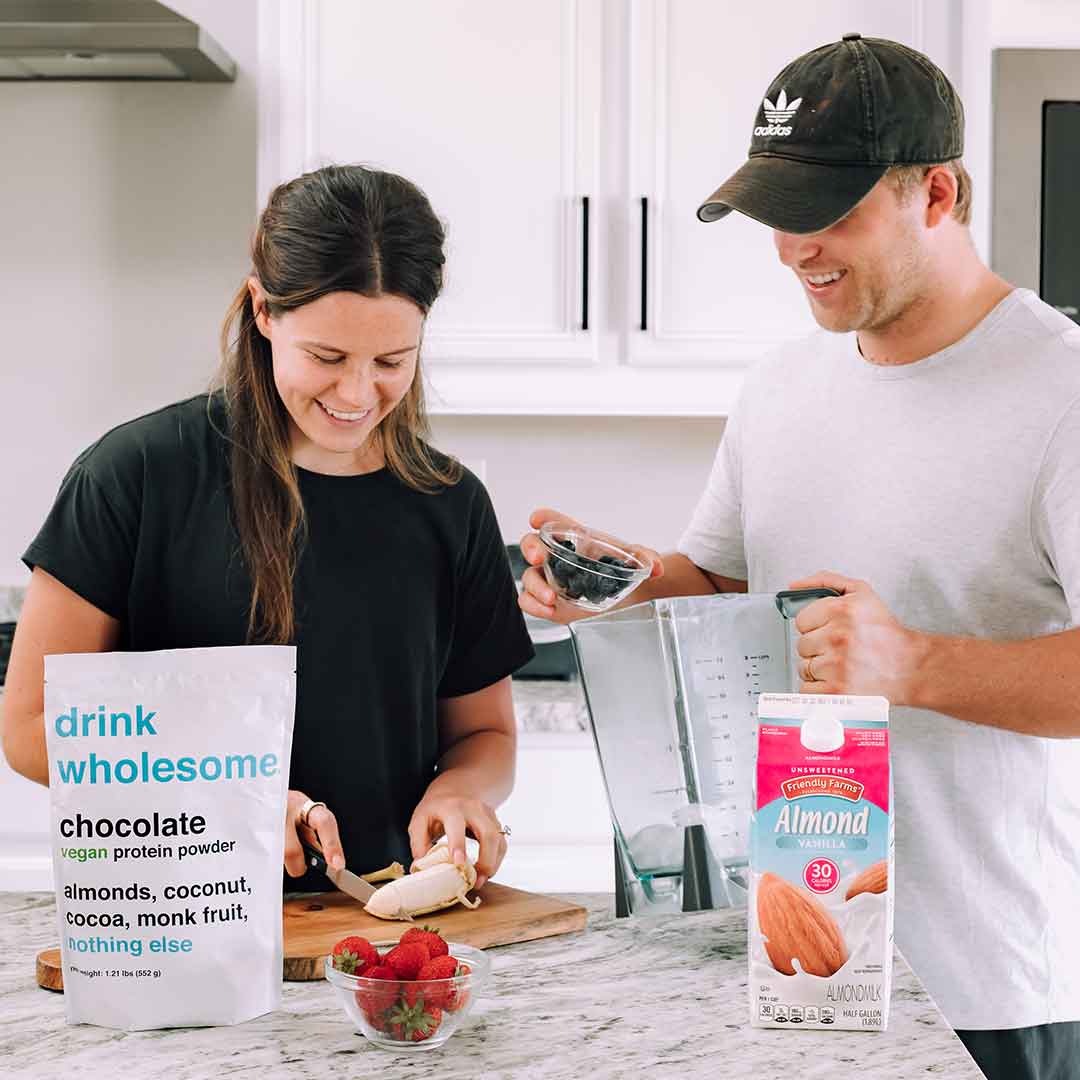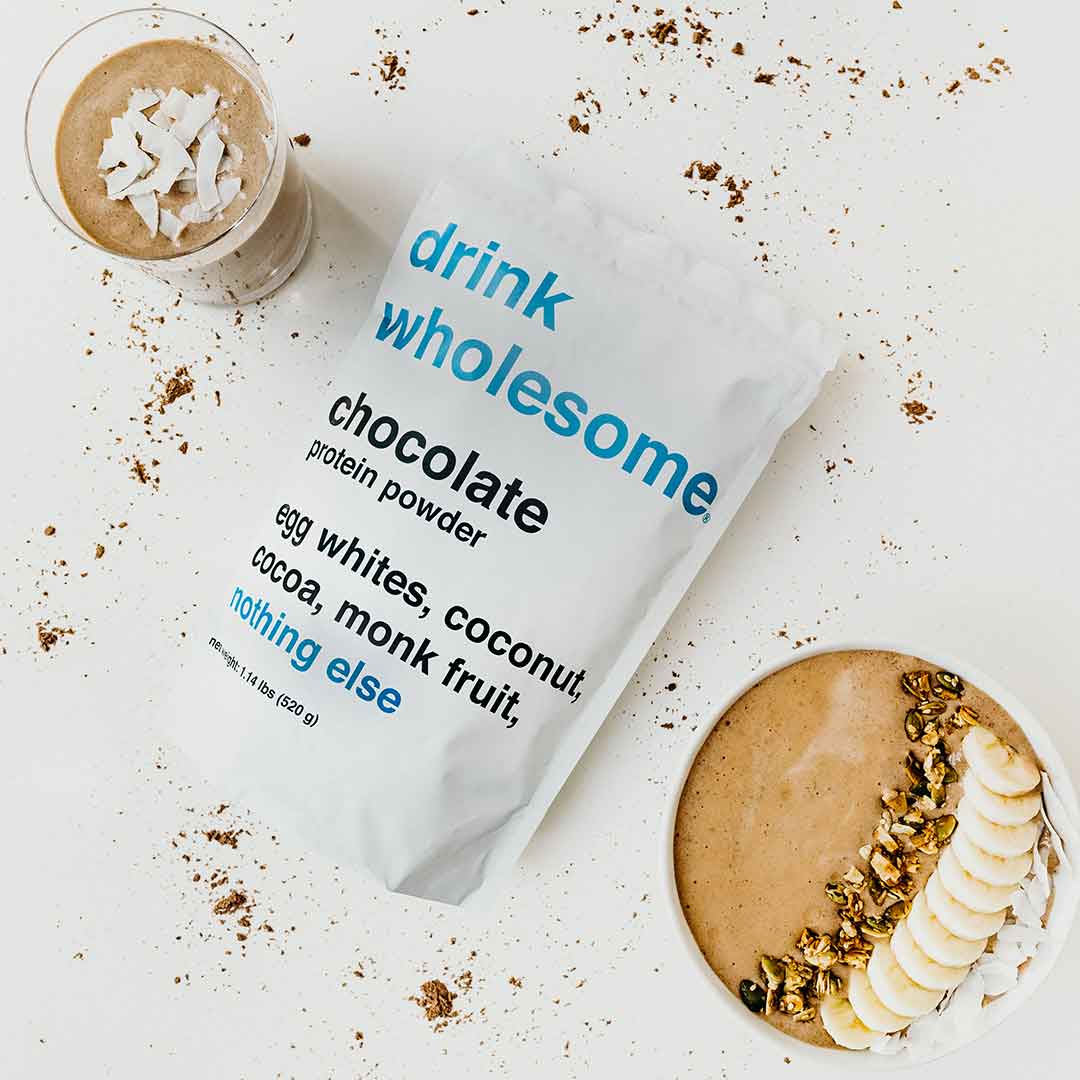What is the best dairy-free protein powder?
What is the best dairy-free protein powder? Keep reading to learn how to find a protein powder that suits your unique dietary needs. This article was written by Jack Schrupp & Brittany Adelman, RDN.
How to choose a dairy-free protein powder
What does ‘dairy-free’ mean?
Before I can give you the scoop on the best dairy-free protein powder, I have to define some terminology. Not to be confused with lactose-free, dairy-free means that a product does not contain milk or ingredients derived from milk. A dairy-free diet thus excludes all dairy products, including butter, cheese, yogurt, whey, and casein.
Is protein powder dairy-free?
Whey and casein are byproducts of cheese and yogurt production, so whey and casein protein powders are not dairy-free. There are lactose-free whey protein isolates, but there is no such thing as dairy-free whey or casein protein powder. People with dairy-allergies must avoid whey and casein protein powders.
People with dairy allergies should also avoid common dairy-based food additives like sodium caseinate. Depending on the severity of your allergy, even small amounts of ingredients like these can trigger an allergic reaction.
To be sure that a protein powder is dairy-free, look for the following labels: “dairy-free,” “vegan,” or “plant-based.” These labels provide a clear indication that the product does not contain any dairy.
Manufacturers are also required to include allergen statements on their packaging. If a protein powder contains dairy, which is a common allergen, it will appear on the ingredient list. It might say something like “Contains: Milk.”
Why use dairy-free protein powder?
Although they are cheap and widely available sources of dietary protein, dairy-based protein powders have a number of drawbacks. Here are the top 8 reasons why you should avoid dairy-based proteins:
1. Dairy-based proteins cause digestive issues. Whey and casein contain lactose, a sugar that most adults cannot digest. If you are lactose intolerant or sensitive, dairy-based proteins can cause digestive symptoms such as gas, bloating, diarrhea, and stomach pain. These are not normal symptoms. Protein powder should make you feel full and satisfied without any side effects whatsoever.
2. Dairy-based proteins can cause acne. Dairy consumption stimulates the production of insulin and insulin-like growth factor, both of which have been linked to acne development. Insulin and insulin-like growth factor regulate sebum production. Sebum, an oily substance produced by your body’s sebaceous glands, can clog pores and result in pimples. If you have acne or are looking to improve your skin health, choosing a dairy-free protein powder is a must.
3. Dairy-based proteins are not sustainable. Although whey protein does offer a way for farmers to reduce waste, it is part of the industrial dairy industry, which has a profound impact on the environment. Dairy cows and their manure produce enormous amounts of greenhouse gas emissions, the poor handling of manure and fertilizers pollute local water resources, and unsustainable dairy farming and feed production can also lead to the loss of ecologically important areas such as prairies, wetlands, and forests.
4. Dairy-based proteins are not suitable for those following an elimination diet. Dairy is a common allergen and trigger. If you are experimenting with an elimination diet, choosing a dairy-free option can help you identify your food triggers.
5. Dairy-based proteins can trigger IBS flares. For some, dairy consumption can alter the composition of your gut microbiome and compromise your gut barrier, leading to increased intestinal permeability. This allows harmful substances to leak into the bloodstream, triggering immune responses and inflammation. For individuals with IBS, reducing or eliminating dairy from your diet can be a crucial step in managing symptoms, supporting gut health, and reducing the risk of inflammatory reactions.
6. Dairy-based proteins are not suitable for vegans. Whey and casein are derived from cow’s milk, making them incompatible with a vegan diet. Dairy farming practices often involve animal exploitation and cruelty, which goes against the ethical principles of veganism.
7. Dairy-based proteins are highly processed. Dairy-based proteins are stripped of most nutrients, which raises a number of health concerns. Basically, getting your protein from a whey protein isolate is like eating a multivitamin instead of eating fruits and vegetables.
In summary, dairy-free protein powder is the best choice for individuals with sensitive stomachs, acne-prone skin, and certain dietary restrictions. Continue reading to learn more about non dairy protein powders, and how they offer the same nutritional advantages as whey and casein without the downsides!
Is non dairy protein powder good for you?
Some people claim that whey is better for you than protein sources such as egg whites, hemp, and peas, but this could not be farther from the truth. While whey is a complete and highly bioavailable protein, it does not offer any nutritional advantages for people getting their protein from a variety of sources.
In case you forgot high school biology, a complete protein contains all the essential amino acids your body needs, but cannot make on its own. Most animal-based proteins are complete, whereas most plant-based proteins are not.
Bioavailability, on the other hand, measures how well the body can absorb and use a nutrient. Whey scores a perfect 100%, while other sources, with the exception of egg whites, score lower.
At first glance, whey would seem to be the ideal protein source – it contains all of the amino acids that you need in a format that is easy to break down and utilize. That said, if you are getting protein from various sources, these advantages do not really matter. A balanced diet will give you everything you need to be strong and healthy, which is why studies indicate that pea and whey proteins yield similar results in body composition and muscle strength when part of a balanced diet.
In summary, whey is a high quality source of protein, but no better for you than any other protein source if you are eating a balanced diet. Do not be fooled by clever marketing.
What is the best non dairy protein powder?
Any type of dairy-free protein (egg whites, hemp, peas, etc.) can help you meet your daily protein needs goal, but not all dairy-free protein powders are created equal..
If you take the time to look at ingredient lists, you will immediately notice that most dairy-free protein powders contain a cocktail of additives including emulsifiers, thickeners, flavors, and sugar substitutes. Ingredients like these can cause painful side effects and long-term gut health problems.
It follows that the best dairy-free protein powders are made with a short list of simple ingredients. By sticking to whole food protein sources and avoiding added junk, you can ensure that your protein powder does not cause any nasty complications.
Insights from a registered dietitian
“Adding dairy-free protein powder to your diet can be a great way to boost your protein intake while working on improving your gut health. By opting for high-quality dairy-free protein powders and using them mindfully, you can boost your daily nutrient intake while keeping tummy troubles at bay.” – Brittany Adelman, RDN
Incorporating dairy-free protein powder is an effective way to prioritize your gut health and overall well-being. Here are a few tips from a registered dietitian on how optimize your gut health while boosting your protein intake:
Rotate protein sources
To support gut health and ensure balanced nutrition, it is important to incorporate a variety of dairy-free protein sources into your diet. By rotating between high quality protein sources such as eggs, legumes, nuts, and seeds, you will diversify your amino acid intake and expose your body to greater nutritional diversity. Experimenting with different types of protein also makes meal and snack time more exciting.
Pair with gut-health foods
A great way to enhance the benefits of dairy-free protein powder is to pair it with other gut-friendly foods. Adding fruits, vegetables, seeds, and grains to your smoothies will make it more filling and easier to digest.
Practice mindful eating habits
Adopting mindful eating practices such as eating in a relaxed environment and avoiding distractions during meals optimizes digestion. When it comes to protein shakes, sipping slowly allows you to tap into satiety cues, promoting better portion control.
Space out your meals
Strategically spacing out your meals is crucial for optimizing digestion and gut health. The migrating motor complex, which activates approximately 2-3 hours after a meal, plays a vital role in resetting digestive pathways, preparing your gut for the next meal. Eating with this timeline in mind supports digestion, reduces bloating, and maintains the healthy functioning of your gastrointestinal system.
Eat lots of fiber
Eating protein without enough fiber can lead to constipation. Adding fiber-rich foods such as fruits, vegetables, and whole grains to your smoothie will make it easier to digest. It is recommended that men and women consume approximately 35 grams and 25 grams of fiber respectively.
Exercise
Consistent exercise plays a crucial role in gut health. Regular physical activity promotes gut motility, enhances nutrient absorption, and contributes to healthy bowel movements. As a rule of thumb, drink your protein shake after a workout, not before, to avoid upsetting your stomach.
Hydrate properly
Drinking lots of water before or during meals can dilute stomach acid and hinder digestion. It is recommended that you sip water throughout the day, but avoid excessive water intake immediately before or during meals to support optimal digestion and nutrient absorption.
Consider timing
Avoid consuming protein powder right before bedtime to prevent sleep interruptions. Allowing your body time to digest food before lying down promotes better sleep quality and reduces the risk of nighttime digestive issues. Opt for lighter snacks or meals in the evening to support more restful sleep.
By following these tips when incorporating dairy-free protein powder into your diet, you can be sure to keep your gut happy and healthy! As always, consult with a healthcare professional or registered dietitian for personalized recommendations based on your unique health needs and goals.
drink wholesome is the best dairy-free protein powder
drink wholesome is additive-free
One of the reasons why we make the best dairy-free protein powder is that we do not use any food additives. Most protein powder companies, on the contrary, use all sorts of additives in their formulations. While food additives can improve qualities like taste, texture, and shelf life, they can also cause many of the same side effects that lactose causes people with lactose intolerance.
Here is a list of the most common food additives in protein powder:
acacia fiber, acacia gum, acesulfame potassium, artificial flavors, ascorbic acid, aspartame, calcium carbonate, carrageenan, cellulose gum, dextrin, dicalcium phosphate, dipotassium phosphate, erythritol, gellan gum, guar gum, gum arabic, inulin, locust bean gum, maltodextrin, mono- and diglycerides, ‘natural’ flavors, rice bran extract, rice dextrin, rice hulls, rosemary extract, silica, silicon dioxide, sodium alginate, sodium bicarbonate, soluble corn fiber, soy lecithin, sucralose, sunflower lecithin, tocopherols, tricalcium phosphate, xanthan gum, xylitol, zinc oxide
Many food additives are so processed that they are hard to digest. They consequently sit in your gut feeding your gut bacteria, which generate gas as they eat. Too much intestinal gas can cause bloating, flatulence, and stomach pain. It can also slow colonic transit, causing constipation.
In some cases, digestion-resistant food additives draw water in your colon. This can lead to diarrhea, and may very well be the reason why protein supplements make you run to the bathroom!
Regularly eating certain food additives can also disrupt regulatory pathways in your intestines, contributing to the development of inflammatory bowel disease (IBD) and other chronic inflammatory conditions. Some additives can disrupt the balance of your gut microbiota too, causing widespread inflammation and a host of other complications.
the alternative:
Protein Matrix Comprised of (Whey Protein Concentrate, Whey Protein Isolate, Calcium Caseinate, Micellar Casein, Milk Protein Isolate, Egg Albumen, Glutamine Peptides), Polydextrose, Sunflower Creamer (Sunflower Oil, Corn Syrup Solids, Sodium Caseinate, Mono- and Diglycerides, Dipotassium Phosphate, Tricalcium Phosphate, Soy Lecithin, Tocopherols), Natural and Artificial Flavor, MCT Powder (Medium Chain Triglycerides, Nonfat Dry Milk, Disodium Phosphate, Silicon Dioxide), Lecithin, Cellulose Gum, Salt, Yellow 5, Sucralose, Acesulfame Potassium, Papain, Bromelain
drink wholesome is made with real foods
A final reason why we make the best dairy-free protein powder is that we do not use protein concentrates or isolates. Nearly all other protein powders are made from one or both of these protein sources, which have been stripped of everything but the protein, including the enzymes, fiber, and other natural digestive aids that help you break them down. This not only makes them hard to digest, but may also alter the composition and function of your gut microbiome.
Instead of using protein concentrates or isolates, I make the best non dairy protein powder with whole foods like collagen, egg whites, and almonds. Protein sources like these are easy to digest and absorb. They also each bring a unique set of digestive benefits to the table.
Collagen can reduce bloating and improve digestive symptoms. Almonds are rich in prebiotic fiber and improve the composition of your gut microbiome. Egg whites are alkaline, meaning they balance the pH levels in your gut, and promote the growth of good gut bacteria.
Our customers experience fewer digestive issues with our dairy-free protein powders than with any other type of protein supplement. Order samples to see for yourself.
“My dietician recommended this, and it is the best non-dairy protein ever!!! The flavor is so good and it is easy to digest. I’ve never had a protein shake like it.” – Britta
Looking for ways to use dairy free protein powder? Try this recipe:
Here is one of my favorite smoothie recipes using a non dairy protein powder. It is super easy to make, and a truly delicious way to boost your protein intake.
Matcha Coconut Protein Smoothie
Ingredients:
– 1 cup unsweetened coconut milk
– 1 serving drink wholesome dairy-free vanilla protein powder
– 1 teaspoon matcha powder
– 1 tablespoon chia seeds
– 1/2 banana
– 1/2 cup frozen pineapple
– 1 handful ice cubes (optional)
– shredded coconut for garnish
Instructions:
In a blender, combine the coconut milk, protein powder, matcha powder, chia seeds, banana, and frozen pineapple chunks. Blend until smooth and creamy. Add ice cubes if a thicker consistency is desired. Pour the smoothie into a glass and garnish with shredded coconut. Enjoy!
This content is not intended to be a substitute for professional medical advice, diagnosis, or treatment. drink wholesome is not intended to diagnose, treat, cure or prevent any disease.




